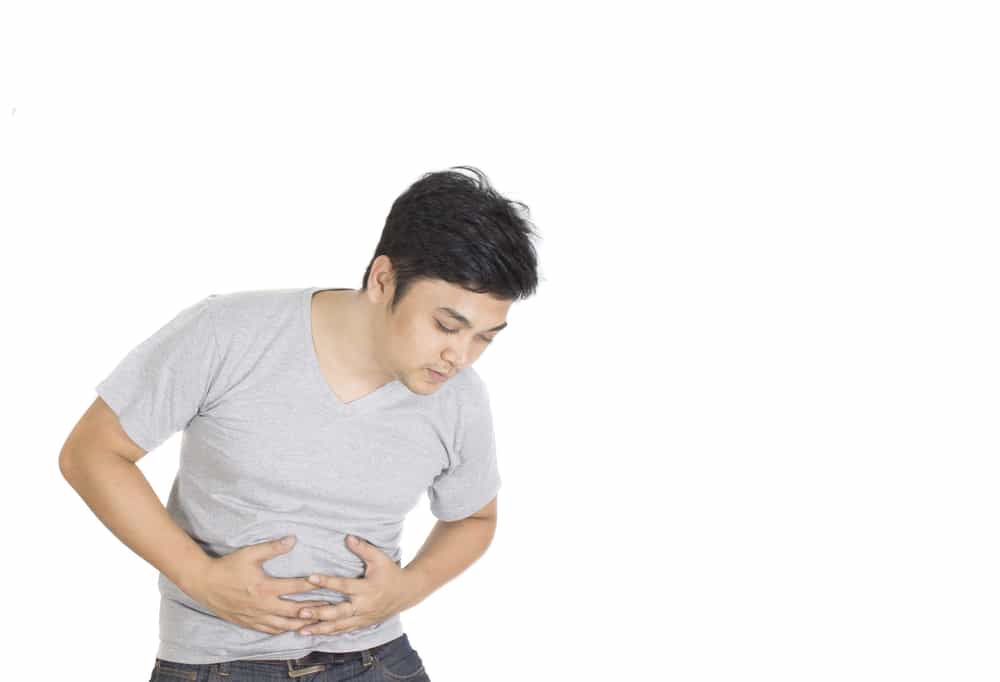Contents:
- Medical Video: 3 Best Home Remedies For FOOD POISONING TREATMENT
- What causes food poisoning?
- What causes vomiting?
- Distinguishing characteristics of food poisoning and symptoms of vomiting
- How do you treat both?
Medical Video: 3 Best Home Remedies For FOOD POISONING TREATMENT
This morning you experience abdominal pain and then diarrhea. You must immediately remember what food you ate last time the day before, and whether the food is clean or not. Food poisoning may be the first disease that comes to your mind. But, abdominal pain and diarrhea are not just a feature of food poisoning. Abdominal pain and diarrhea can also be the beginning of symptoms of vomiting or gastroenteritis. Here's how to differentiate the characteristics of food poisoning and vomiting symptoms so you can get the right medical help.
What causes food poisoning?
Food poisoning is an infection of the digestive tract caused by food and beverages that contain bacteria, parasites, viruses, or harmful substances. The most common cause of food poisoning is caused by the staphylococcus aureus toxin.
Most food poisoning is an acute case. This means that this condition only lasts a while, can heal itself, and rarely causes complications. Characteristics of food poisoning are almost the same as other digestive tract infections, such as abdominal pain, vomiting, and diarrhea.
What causes vomiting?
Muntaber or commonly called gastroentritis is a norovirus infection that causes inflammation of the digestive tract. Muntaber is always caused by a virus instead of bacteria or parasites. Symptoms of gastroenteritis include: runny diarrhea, vomiting, dizziness, fever, and chills. Symptoms usually appear 12-48 hours after the virus is affected and lasts 1-3 days, but some can last up to a week.
The loss of lots of fluids through diarrhea and vomiting can disrupt the body's electrolyte balance, so it can be potentially life-threatening.
Distinguishing characteristics of food poisoning and symptoms of vomiting
Vomiting symptoms and characteristics of food poisoning often overlap. Both of these digestive disorders can cause you to experience vomiting, diarrhea, abdominal pain, bloating, fatigue, and maybe fever.
According to Dr. Michael Rice, a gastroenterologist, the way to distinguish whether you are exposed to food poisoning or gastroenteritis is to look at the activities that were carried out before the disease.
"Symptoms caused by food poisoning last for several hours after eating," said Dr. Rice. If you eat or drink and people who consume it also have the same symptoms or doubt about the quality, maybe you have food poisoning.
If you are the only one who gets sick after eating certain foods, you are sneezed on other people along the way, or holding a contaminated doorknob may you get vomiting.
Also watch for signs of dehydration such as the amount of urine that is reduced or the color becomes thick and feels dizzy. If your condition does not improve after more than two days, the fever does not go down, mucus appears in the stool, numbness or tingling sensations appear, and signs of dehydration, immediately go to the doctor to get further treatment.
How do you treat both?
For therapy, both are usually given a modified diet with the BRAT diet consisting of bread, rice, applesauce, and toast. The alternative to the BRAT diet is with salted biscuits. The purpose of this diet is to replace lost calories and electrolytes. In addition, avoid caffeine and alcohol not to further irritate the walls of the digestive tract.












